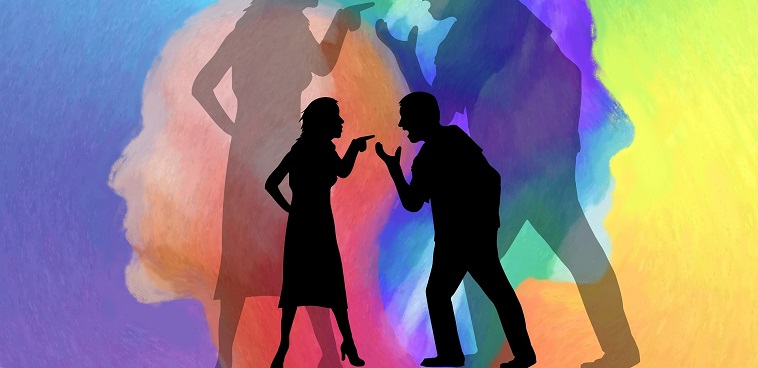If ever there were a time when a topic could not be more timely, it is now. The subject topic is “erisology.” I confess that, until recently, I might have mistaken as a misspelling of “erosology.” The topics could not be more different. The latter refers to love, the former to disagreement.
“The word erisology comes from Eris, the Greek goddess of discord,” writes Jesse Singal in The Atlantic, “who proved in antiquity that you could get people into fights by giving them ambiguous messages and letting them interpret them self-servingly and according to their own biases.”
Singall quotes a Swedish blogger and self-described polymath, John Nerst, who writes:
“Erisology is the study of disagreement, specifically the study of unsuccessful disagreement. An unsuccessful disagreement is an exchange where people are no closer in understanding at the end than they were at the beginning, meaning the exchange has been mostly about talking past each other and/or hurling insults. A really unsuccessful one is where people actually push each other apart, and this seems disturbingly common.”
In short, eris ain’t no eros. Eris, however, is a compelling subject for exploration today when disagreement seems more common than agreement. Disagreement alters how we regard one another.
Arthur C. Brooks in his 2019 book “Love Your Enemies” argues that a symptom of profound disagreement is contempt. Hence the subtitle of his book: “How Decent People Can Save America from the Culture of Contempt.” Contempt leads to the objectification of the other, which is a process of dehumanization.
Studying the topic of disagreement instead is not about being disagreeable, it’s about finding out why people are so adversarial toward one another. The reasons are speculative — social media and the abnegation of fact — but the results are people believe what they want to believe and, in doing so, end up in separate camps. Such distancing is not healthy for our culture.
Getting along better
Prescribing solutions for the phenomenon can be academic, but on a personal level, I think we all know how to get down to basics. Here are three suggestions.
- Do not pre-judge. So often we view someone even before we meet the person as an identity rather than a human being. In other words, we are judging people as “brands” rather than as humans. It becomes a shorthand for ignoring their personhood.
- Listen carefully. Invite the other to speak first. Stay calm, breath regularly and relax your facial muscles. Take a point the other has said and use it as an opening for a new line of discussion.
- Argue dispassionately. Look for areas of commonality. Rational people can find something upon which they can agree, even if it’s only a flavor of ice cream. Use that commonality as a bridge to finding understanding.
These three steps, while easy to state, can be difficult to implement when tempers flare and more difficult still when people feel their values are under siege. And that may be the root of the entire topic of erisology.
Disagreement stems from differing points of view that may be anchored in deep-seated beliefs that each hold dear. The challenge is to put aside the animus and respect one another as sentient and capable. We can feel, and we can decide.
“Most people really are tired of shouting matches and want more nuance (according to surveys etc.),” says Nerst in The Atlantic article, “and I hope we will develop some cultural immunity towards [manufactured anger] soon. … I’m cautiously optimistic. If and when we get to that future, we might appreciate having tools on hand to make sense of what’s happened and how to get away from it.”
Tools, I would argue, are at hand. Our challenge is to put them to good use.
John Baldoni is an internationally recognized leadership educator and executive coach. In 2018, Trust Across America honored him with a Lifetime Achievement Award in Trust. Also in 2018, Inc.com named Baldoni a Top 100 Leadership Speaker. In 2019, Global Gurus ranked him No. 9 on its list of top 30 global experts, a list he has been on since 2007. In 2014, Inc.com named Baldoni to its list of top 50 leadership experts. Baldoni is the author of 14 books, including“MOXIE: The Secret to Bold and Gutsy Leadership” and his newest, “GRACE: A Leader’s Guide to a Better Us.” Learn more about why he wrote “GRACE” in this short video.
If you enjoyed this article, sign up for SmartBrief’s free e-mails on leadership, career growth and HR, among SmartBrief’s more than 200 industry-focused newsletters.
